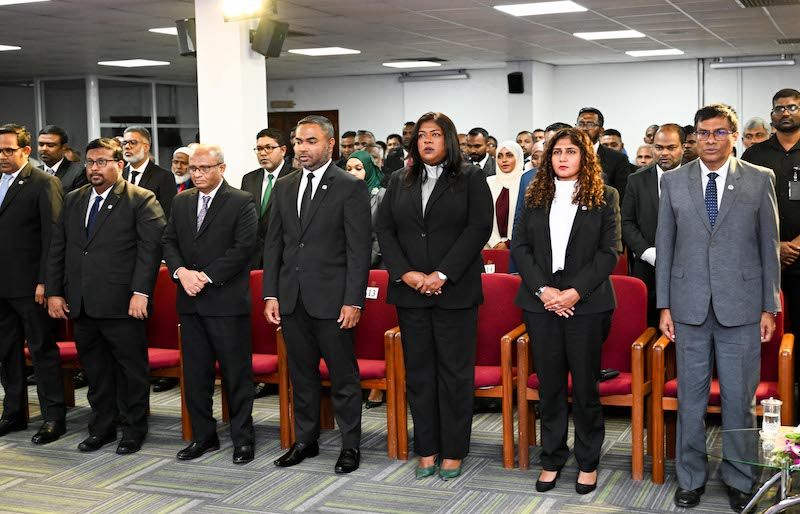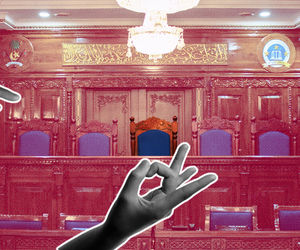Fallout continues from "unconstitutional" Supreme Court purge
A digest of yesterday's top story.

At a press conference on Wednesday afternoon, Ali Hussain, a former lawmaker and the petitioner in the legal challenge against the new constitutional prohibition on floor-crossing, accused the government-controlled watchdog of “manufacturing” ethical cases as a pretext to impeach Supreme Justice justices. “They are creating cases out of thin air by using ACC and JSC to suspend judges…They are working to remove judges by creating non-existent cases. We believe the evidence will also be fabricated," he told the press.
Mahfooz Saeed, the lead counsel on the constitutional challenge, suggested that both parliament and the JSC have been stacked with “yes men who will obey the president's orders.”He added: “We say that our system has separation of powers between the three powers of the state, but all the principles for this separation have been torn down."
Fayyaz Ismail, chairman of the main opposition Maldivian Democratic Party, announced a series of protests and invited all political parties, civil society organizations, and democracy advocates to join. “What is operating in the Maldives right now is an unlawful state, and especially, the entire system of governance has been demolished,” he said.
The Maldives Bar Council expressed grave concern and urged President Dr Mohamed Muizzu not to ratify the bench reduction bill. “The amendment to the Maldives Judicature Act passed by the parliament is unconstitutional, violating articles 148, 149, and 154 of the constitution as well as constitutional and legal principles,” the Bar Council said.
“Judges can be removed if they commit an act unbecoming of a judge or if they lack the capability for the post. There is no legal principle for removing judges in the name of reducing the number of judges,” former prosecutor general Ahmed Muizzu tweeted.
“When a totalitarian or an oppressive regime begins to disregard popular sovereignty, it is inevitably writing its own demise,” former chief justice Dr Ahmed Abdulla Didi observed.
“It takes a diamond to cut a diamond," former attorney general Fathmath Dhiyana advised, “If the courts are not free, there’s no need for us lawyers to go to court. The whole Bar Council’s operation should be temporarily voluntarily suspended.”
Discussion
No comments yet. Be the first to share your thoughts!
No comments yet. Be the first to join the conversation!
Join the Conversation
Sign in to share your thoughts under an alias and take part in the discussion. Independent journalism thrives on open, respectful debate — your voice matters.


